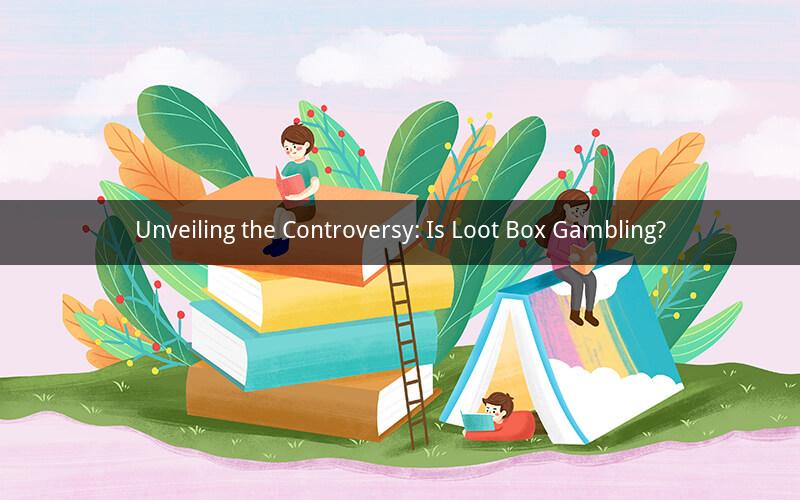
Loot boxes, a feature introduced in video games, have sparked a heated debate among gamers and regulators alike. Critics argue that these mystery boxes constitute gambling, while defenders claim that they are merely a form of in-game content. This article delves into the intricacies of loot box gambling, exploring its definition, potential risks, and the ongoing legal battles surrounding it.
I. Definition of Loot Boxes
Loot boxes are virtual containers that players can purchase or earn in games. Upon opening a loot box, players receive random rewards, which can range from cosmetic items to in-game currency and exclusive characters. These rewards are meant to enhance the gaming experience, but the uncertainty of what players will receive has raised concerns.
II. The Debate: Is Loot Box Gambling?
The argument that loot boxes are gambling revolves around the element of chance and the potential for players to spend real money to acquire desired items. Here are some key points to consider:
A. The Element of Chance
Loot boxes involve an element of chance, as players are unsure of the contents they will receive. This similarity to gambling has led some to label it as such.
B. Real Money Transactions
Players can purchase loot boxes using real money, which further fuels the debate. Critics argue that this aspect makes it gambling, as players are gambling with their own funds.
C. Psychological Impact
The allure of obtaining rare or desired items can lead players to spend more money than they intend. This psychological impact is reminiscent of gambling addiction, raising concerns about the potential harm to young players.
III. Potential Risks of Loot Box Gambling
The debate over loot box gambling has raised several potential risks, including:
A. Financial Burden
Players may find themselves spending excessive amounts of money on loot boxes, leading to financial strain and addiction.
B. Social Impact
The pressure to obtain desired items can create a sense of inequality among players, leading to social isolation and conflict.
C. Legal and Ethical Concerns
The blurred line between loot boxes and gambling raises legal and ethical concerns, as it may be seen as exploiting vulnerable players.
IV. Legal Battles and Regulation
Governments and regulatory bodies around the world are taking notice of the loot box gambling debate. Here are some key developments:
A. The European Union's Stance
The European Union has expressed concerns about loot box gambling and is considering stricter regulations to protect players, especially minors.
B. The United States' Approach
In the United States, the debate is ongoing, with various states considering regulations to address the issue.
C. The Industry's Response
Game developers and publishers are facing pressure to reform their loot box systems, with some companies implementing changes to address concerns.
V. Conclusion
The debate over loot box gambling is far from over. While some argue that they are a form of gambling, others believe that they are simply a marketing tool. As the industry continues to evolve, it is crucial for developers, regulators, and players to engage in open discussions to ensure a safe and enjoyable gaming experience for all.
Questions and Answers:
1. What are loot boxes, and how do they work?
Loot boxes are virtual containers in video games that players can purchase or earn. Upon opening, they provide random rewards, which can include cosmetic items, in-game currency, and exclusive characters.
2. Why is there a debate about loot box gambling?
The debate arises due to the element of chance involved in obtaining rewards and the potential for players to spend real money on these boxes, resembling gambling.
3. What are the potential risks of loot box gambling?
The risks include financial burden, social impact, and legal and ethical concerns, as well as the potential for addiction and exploitation of vulnerable players.
4. What is the European Union's stance on loot box gambling?
The European Union has expressed concerns about loot box gambling and is considering stricter regulations to protect players, especially minors.
5. How are game developers and publishers responding to the loot box gambling debate?
Some companies are implementing changes to address concerns, while others are under pressure to reform their loot box systems to ensure a safe and enjoyable gaming experience for all.